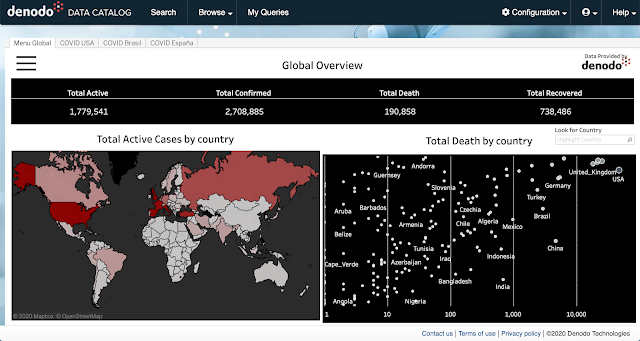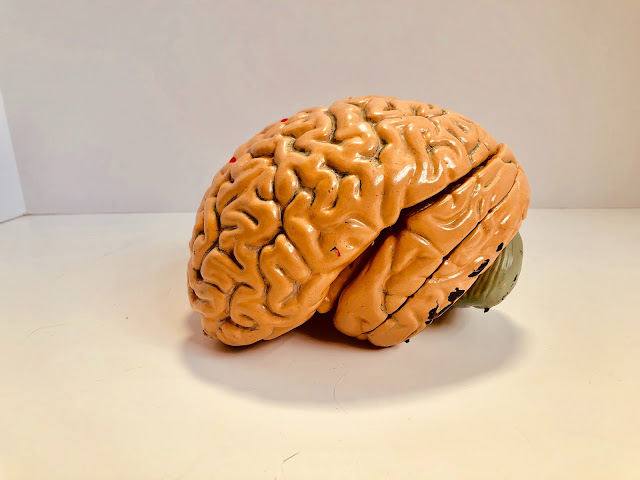This is useful - a curated data catalog about COVID-19

The ability to analyze COVID-19 data is very limited as the data quality differs enormously among the different available datasets.
Nevertheless, we have to play with what we have, and even though applying advanced analysis is difficult, one can always get a feel of how things are going locally and globally by checking the data.
Well... this is not as simple as it seems. Interested people may have issues getting relevant data. Newspapers do their job but sometimes this is not enough.
Denodo, a company I love as I worked there for many years, announced a week or two ago that they were compiling all the relevant datasets around COVID-19 throughout a data catalog in order to provide people a meaningful and smart way to access information. This weekend I finally found some time to play around and I have to say they did a pretty good job.
The first thing you see is a dashboard, not unlike to the well-known Johns Hopkins one. This is good, but the real deal comes when you click on the Browse button and start playing around with the data repositories. You can select among many different ones and start building your own queries.
The image below is a very simplistic query on a single dataset showing the updated data on Spain. The following one shows the results.
Another interesting features is that the dataset can be downloaded to be treated with Tableau. Unfortunately I only have Tableau Reader, a free tool that only accepts tdws files, so I could not check it out.
You can also check the relationships among the different data sources. I haven't checked but since I know how powerful VQL (the SQL-like query language built by Denodo to process information from different places), I guess one could start building complex queries that match data from those sources. I will leave that to another time.
I may sound biased, but the truth is that I was looking for a service like this to grasp a good understanding of how COVID is affecting our lives in a deeper way.
Denodo requests our help to find and uploaded curated datasets that enrich this information. I hope this continues growing.







Comments